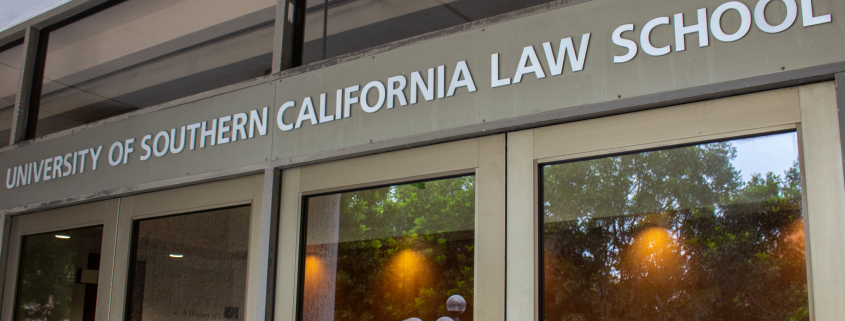Gould offers new undergraduate minors

After a year of offering the legal studies minor and in response to students’ increased interests in social justice and immigration-related issues, the USC Gould School of Law will offer two more specialized minors.
Gould’s new law and social justice and law and migration studies minors will be offered beginning in Fall 2021. According to Robert Rasmussen, the J. Thomas McCarthy Trustee chair in law and political science, it is beneficial for people to familiarize themselves with the law, regardless of their professional background.
“We added the specialized minors, each for an independent reason … The immigration minor is really targeted for people who want to understand some of the complexities of the current immigration crisis in this country,” Rasmussen said. “The second minor is a touch broader, it’s focused on issues of social justice, and our conception of that is the required courses give you a background in law and then the elective courses you can decide what aspect of social justice you want to learn more about.”
Most of Gould’s students are pursuing juris doctor degrees, and the school does not offer any undergraduate majors. Gould began offering undergraduate minors because law affects everyone, and students can broaden their education by understanding the concept of law and its impact on society.
Maddy Zamany, the director of undergraduate programs at Gould, said getting the new minors added to the undergraduate programs was the product of teamwork and collaboration from Gould faculty. Zamany believes that the minors will be attractive to undergraduate students because Gould is one of the top 20 law schools in the country. She also believes the minors are unique because 95% of the faculty that teach the courses are full-time Gould faculty that also teach J.D. students.
“It all goes back to our mission statement for the office of the undergraduate programs at Gould, which is to educate undergraduate students [and] to introduce them to the concepts of law early on in their education so that they can contribute to society in a more meaningful way as informed citizens,” Zamany said. “Law is everywhere, so we want to make sure that our undergraduate students are informed, they know basic concepts of law in order to help them through their education and also through life.”
The law and social justice minor is an 18-unit program that will teach students about the present justice system and provide critical-analytical skills to understand where changes to society must be made. The minor also provides an interdisciplinary approach, as it can be satisfied by elective courses from the Annenberg School for Communication and Journalism, the Dana and David Dornsife College of Letters, Arts and Sciences and the Suzanne Dworak-Peck School of Social Work.
Olivia Tyler, a sophomore majoring in journalism, was one of the first students to declare a minor in law and social justice. While Tyler originally went to a political science adviser to declare a political science minor, she ended up signing up for a minor in Gould because she said it offered exactly what she wanted.
“I’m very interested in social justice,” Tyler said. “As a minority, it’s important to understand the law, and be educated on what your rights are, and I’ve always wanted to fight for people who look like me.”
The 20-unit law and migration studies minor introduces students to the American legal system by looking at it through the lens of immigration law, how it affects communities in the United States and the consequences it has for society, both domestically and internationally.
The curriculum for the minor allows students to understand the complex concepts of immigration law and migration studies, and also equips students with an interdisciplinary approach through elective courses offered through Dornsife and the Sol Price School of Public Policy.
Rasmussen said that the law and migration studies minor “allows for people who care a lot about issues of immigration to be “sophisticated consumers on the news.” He said that sometimes, people hear about immigration on the news but do not understand what the ground rules are or who the major stakeholders are in these situations.
“Part [of this minor] is courses about immigration law, so people know the parameters, and then there are also courses not taught by the law school, but by other parts of USC, about some of the policy choices that we make,” Rasmussen said. “Law is how we implement the policy choices, but law doesn’t determine what they are … and the other courses help frame your thinking of, ‘What should our stance be as a country towards immigration?’”
Rasmussen said that he hopes undergraduate students who take Gould’s courses “understand how law impacts what they’re doing,” even if they’re not going to law school or planning on pursuing law further.
“I think for too long, when you look at undergrad education, there wasn’t enough … opportunities to understand how law fits into what you’re learning as an undergraduate,” Rasmussen said. “Law is a social product. It shapes our society, and if you think a lot of what we’re studying as undergrads are issues that affect our society, law is part of that.”

